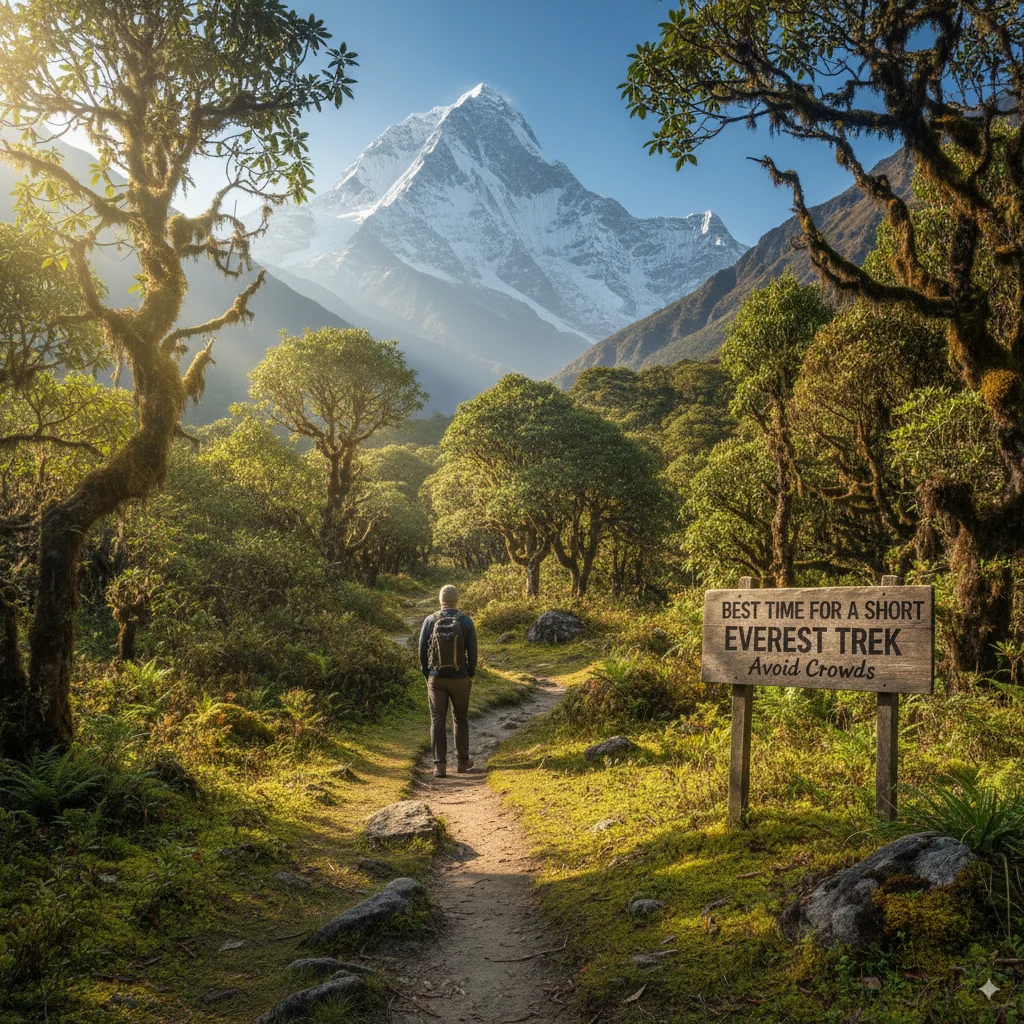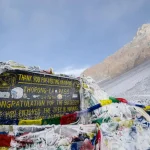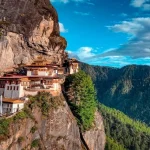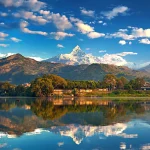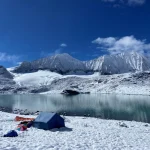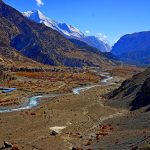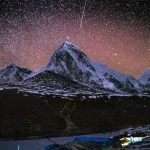The Ideal Seasons for Your Short Everest Trek
One of the most popular treks in Nepal is Everest, which attracts thousands of tourists annually because of its breathtaking scenery and breathtaking views. Most people opt for this trip in the spring and autumn because the Everest Trek is easier and provides all the benefits. However, since they can walk in peace and on their own schedule, some people and groups may decide to go during off-peak hours.
If you’re one of those people who would rather overcome some obstacles to keep the peace and enjoy the peace and quiet of nature, this article is for you. In order to avoid crowds and have a peaceful, private trip, we will carefully examine the best time of year for a short Everest Trek.
Short Everest Trek
For Trekkers whose primary objective is to escape the crowds and enjoy the tranquil grandeur of the Himalayas, certain seasons and carefully planned travel offer unparalleled opportunities for seclusion.
Winter (November-February)
Winter is one of the most challenging seasons for a short Everest trek because of the bitterly cold temperatures, which also makes it one of the best times to avoid crowds.
Since temperatures at Everest Base Camp typically range from -15°C to -5°C during the day and frequently drop to -20°C or lower at night, it is not for everyone and is only possible for those who are brave and experienced.
Despite the challenges, you are rewarded with serene views of the snow-capped peaks and mountains, which are rare to see.
After completing such a difficult trek, the reward is the stunning landscape and the peaceful, secluded journey.
Monsoon (June – August)
Even though the monsoon Everest trek is more challenging than the winter trek, it is still more peaceful and quiet. Most trekkers avoid this time of year because of the muddy terrain, intense rains, and poor visibility.
On the other hand, this might be the best time of year for people who are prepared to face some difficulties in order to have a quiet stroll and stay away from crowds.
Monsoon trekking is probably going to be a unique experience, but you need to be cautious and organised.
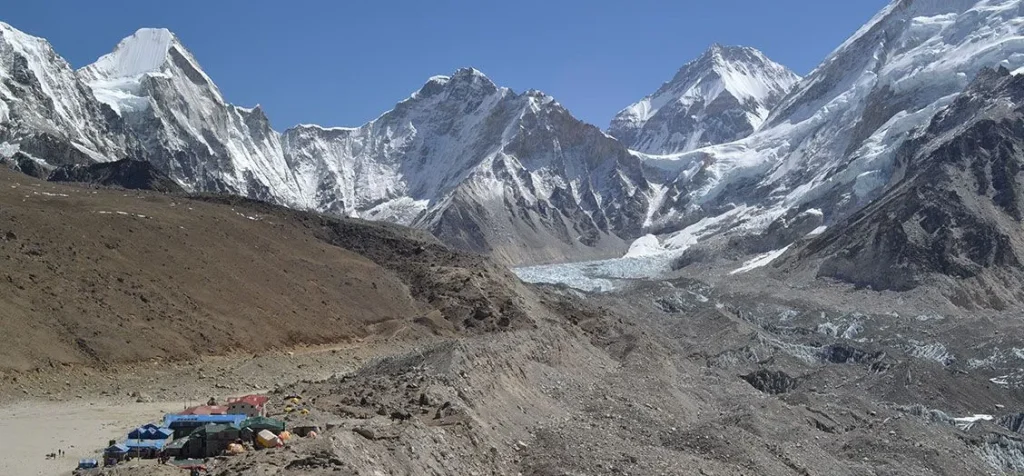
Safeguards during Short Everest Trek
Because there may be less help available when faced with challenges, hikers should be extra cautious and take extra safety precautions on less frequented and off-season hikes.
- Prepare for the extreme cold; a winter trip calls for plenty of warm clothes and top-notch trekking gear that can withstand the low temperatures.
- Rainfall will be heavy and frequent, making the roads slick and muddy… Waterproof gear is not only leech-safe but also necessary for the monsoon trek.
- Drink plenty of water and always have first aid supplies and necessary medications on hand.
The off-season Everest trek can be fully enjoyed if safety measures are followed, one is adequately prepared, and one has a sufficient understanding of the route. Another benefit for the adventurous is that the walk will be less crowded and finish sooner.
Why Choose the Off-Season Trek to Everest?
Trekking to Everest during the off-peak seasons is an experience unlike any other; it’s not just about avoiding the crowds. Imagine hearing only the wind and your own footsteps while standing at the foot of the tallest peaks in the world. While the monsoon covers the trails with lush greenery and misty mountain views, the winter season brings sparkling, snow-draped landscapes. With fewer trekkers, lodges can provide more privacy, quicker service, and an opportunity to fully engage with the local Sherpa culture and environment.
Trekking during the off-season offers some special photo ops as well. Winter snow-capped peaks or colourful monsoon forests make for Instagram-worthy photos that are nearly impossible to get during the busiest times of the year. Additionally, quieter trails make it easier to spot wildlife; be prepared with your camera for Himalayan birds, yaks, and even the elusive red pandas !
Short Everest Trek Routes for Solitude Seekers
If a full Base Camp trek seems too difficult during the off-season, there are shorter routes that provide stunning scenery and a tranquil experience:
- Everest View Trek to Tengboche: Perfect for first-timers or those short on time. Stunning panoramas and serene monasteries await.
- Namche Bazaar & Khumjung Loop: Experience Sherpa culture, panoramic mountains, and quiet trails in 4–5 days.
- Gokyo Lakes Short Trek: Fewer crowds and spectacular turquoise lakes surrounded by towering peaks.
You can experience Everest with any of these options without having to deal with crowded trails and drawn-out itineraries.
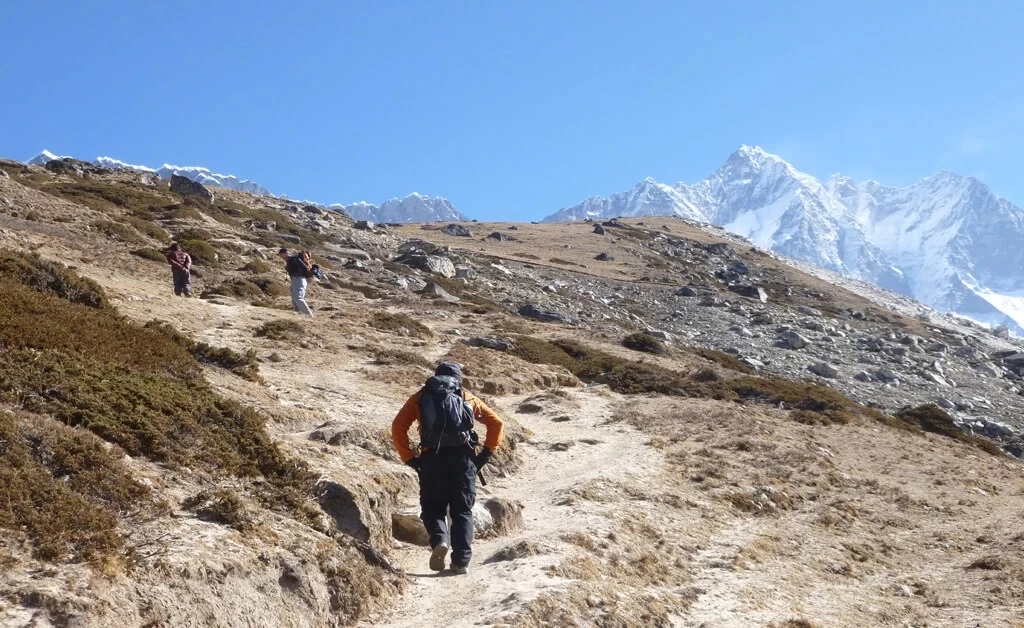
Off-Season Everest Trekking Tips
For a trek to be both safe and enjoyable in the winter or monsoon, preparation is essential:
- Gear Up: Pack insulated jackets, waterproof gear, trekking poles, crampons for icy paths, and high-quality boots.
- Health & Acclimatisation: Take extra days to acclimatise to prevent altitude sickness. Keep essential medications handy.
- Hire a Local Guide: Trails can be slippery or difficult in winter and monsoon, so a guide ensures safety and local insights.
- Flexible Itinerary: Flights to Lukla are often delayed in bad weather. Keep buffer days in your schedule.
- Stay Hydrated & Safe: Cold weather reduces thirst, but hydration is critical. Always drink water and monitor your health.
Make Your Off-Season Everest Adventure a Reality
Are you ready to escape the crowds and explore Everest in solitude? Plan your short Everest trek adventure right away with Nepal Adventure Trail to take part in an experience of a lifetime. Your serene Himalayan adventure awaits, whether it’s a quick trip to Tengboche or a strenuous winter hike to Base Camp.
- Plan Your Trek Today: Don’t let the peak season chaos stop you.
- Need Guidance? Connect with our team of experienced local guides who know the trails inside out.
- Gear Checklist Ready: Ensure you’re fully prepared for your off-season adventure.
While off-season trekking on Everest isn’t for everyone, it’s the best way to escape for those who yearn for adventure, tranquillity, and stunning vistas. See the Himalayas’ silent enchantment by choosing the less-travelled route.
Frequently Asked Questions
Is it safe to hike Everest during the monsoon or winter seasons?
Yes, but you need to prepare more. The monsoon season brings slick roads and low visibility, while winter brings bitter cold and icy paths. For experienced and prepared hikers, both seasons can be safe with the correct equipment, a local guide, and adequate acclimatization.
Will lodges and tea houses be open during the off-season?
Many of the main routes are still open during the monsoon and winter months, though not all of them. More availability results from fewer hikers, and you’ll frequently enjoy quieter stays and better service.
How can I get ready for the weather during the Short Everest Trek?
Bring insulated clothes, crampons, and high-quality sleeping bags that are rated for extremely cold temperatures during the winter. Leech-proof socks, fast-drying clothing, and waterproof equipment are necessary during the monsoon season. Always bring extra clothing so you can adapt to changing conditions.
Are delays more likely to occur on flights to Lukla?
Indeed. Poor weather and visibility during the winter and monsoon seasons increase the likelihood of delays or cancellations. It is strongly advised that you include two or three buffer days in your itinerary.
Is a short trek a good idea in the off-season?
Yes, definitely. For travelers in the off-season, short routes like Tengboche, Gokyo Lakes, or Namche Bazaar are ideal. Without the severe hardships of a full Base Camp trek in inclement weather, they allow you to take in the splendor of Everest.
